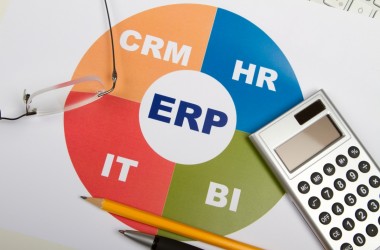Are ERP systems still useful?

When companies commence an enterprise software initiative, they should think thoroughly about the goal of the initiative. Does the company want incremental efficiency improvements or does it want to embark on a digital transformation journey?
What is the difference?
ERP implementations often focus primarily on automating processes and increasing efficiency by implementing one ERP system. Digital transformations intend to materially disrupt and improve current business models. More specifically, digital transformations leverage multiple innovative technologies to provide better products or services to customers.
In short, ERP implementations focus on optimizing the current business model. Digital transformations are about changing the business model.
Digital transformation – the new buzzword
In these times of rapid change and innovation, digital transformation is almost in every study, keynote, panel discussion, article, white paper, … proposed as the solution. Why?
Because, on the one hand, there are companies operating in an industry that is already heavily influenced by digitization (travel industry, print industry, …). For these companies, digital transformation is their survival strategy. On the other hand, there are companies who leverage the opportunity of digital and take a competitive advantage. Digital transformation is for them a way to become more profitable and efficient, serve their customers better, …
Why bother a new ERP system?
Because ERP systems can serve as the backbone of your digital transformation. Digital transformations can entail any number of technologies: Software as a Service (SaaS), cloud applications, business intelligence tools, CRM, Human Capital Management (HCM), mobile applications, Internet of Things (IoT), …
Your ERP system should be at the center and all above technologies can be interfaced with the EPR system. As such, innovative technologies can be implemented to execute the digital transformation, whilst having a supportive and solid ERP system feeding the innovative technologies. Additionally, having the ERP system at the center will allow companies to have a centralized steering and information-providing mechanism.
To incorporate the ERP system into the digital transformation strategy, a company should visualize end-to-end processes. Developing such holistic view will help to identify the interrelationship between the ERP system and the surrounding technologies.
In conclusion, when companies think about implementing a new ERP system or their digital transformation journey, they should clearly identify how the ERP system will interact with the innovative technologies required for the digital transformation. As such, they can define a Best of Breed solution that enables their digital transformation without sacrificing a central supportive ERP system.
How to start?
Do you also wish to leverage your ERP system to fully grasp the opportunities of a digital transformation? We are happy to come and visit you! Email us at info@horsum.be or call us on
+32 9 378 38 28 for more information.
Cédric Verfaillie - May 22nd, 2017
